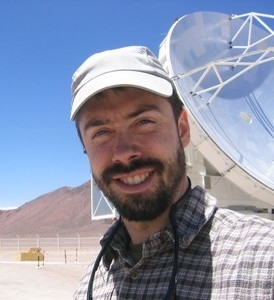
By William Raillant-Clark
Although “mastering the universe” doesn’t actually appear anywhere on Matt Dobbs’s CV, his ongoing quest to do just that has earned him a much-coveted 2010 Sloan Research Fellowship worth $50,000.
“My research aims to improve our understanding of the fundamental constituents of the universe – including its origin, history and fate” said Dobbs, Canada Research Chair in Astro-particle Physics.
Sloan Fellowships are awarded to “early-career scientists and scholars of outstanding promise” in recognition of the fact that financial assistance at this point in a researcher’s career is often crucial to his or her future scientific success. A total of $5.9 million U.S. is awarded annually to 118 recipients.
He joins an illustrious group – 38 Sloan Research Fellows have gone on to win Nobel Prizes – and his work makes for very interesting reading regardless of your level of scientific literacy. “It’s about fundamental cosmology and good old-fashioned adventure,” explained Dobbs. “We’re building instruments to image the earliest moments of the universe’s evolution, and then taking them to the very corners of the globe and beyond – the geographic South Pole, Chile’s Atacama plateau at 5100m altitude, and the top of the atmosphere aboard a NASA stratospheric balloon.”
Dobbs has all the makings of a real-life Indiana Jones – with a helping of cutting-edge science added to the mix. His study into cosmic microwave background (CMB) radiation hits the intersection of the laws of particle physics and cosmology. Although particle physics addresses the smallest structures in the universe and cosmology the very largest, Dobbs believes CMB radiation may reveal clues about the beginnings of the universe, symmetries within its structures, and eventually the Grand Unified Theory by which physicists seek to explain fundamental interactions.
Thrilled with the team that’s been built to support this research, Dobbs concludes that “success is not just about scientific excellence, but also about getting things done in extreme environments – I’ll be relying on the abilities of our exceptional team of students, postdocs, and collaborators as much as my own.”
